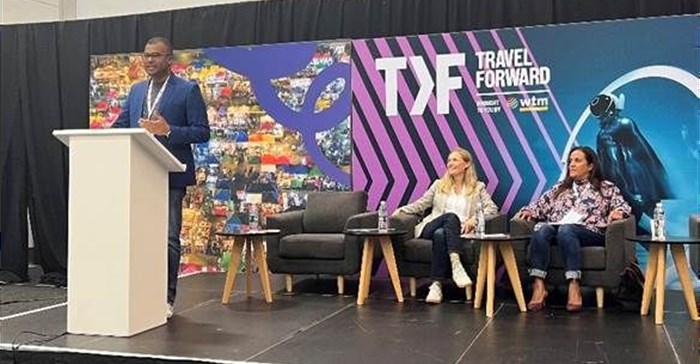
Top stories






More news














Logistics & Transport
Maersk reroutes sailings around Africa amid Red Sea constraints



Enver Duminy, CEO of Cape Town Tourism said that for too long destinations and traditional DMOs have been locked into the marketing phase of promoting and selling their towns, cities, regions and countries. This has become outdated given how fast the landscape has changed. Visitors want destinations to be responsive and immersive. Right now, many places still market the same way they did twenty years ago, and destinations appear to be so alike, you only notice the difference when you see the name of destination in an advertisement or on social media and the marketing is starting to look and feel the same.
Recognising this, CTT embarked on a path to respond to changing global behaviour, while predicting future travel needs, so that we design, develop and prepare for tomorrow’s tourist, today. Elaborating, Lisa-Ann Hosking, Destination Management Executive at CTT, said a shift in mindset was required. "We needed to move from seeing success as simply an increase in visitor numbers. We needed to focus on the visitor journey in its entirety. In a post Covid-19 world, that means ensuring travellers feel safe and creating shared value for SMMEs through tourism. It means not just ticking boxes but looking at impact"
DXO is more than just moving away from being a DMO, in fact, there are some valuable parts of traditional DMO which could be harnessed as part of the transformation towards DMO. In fact, DXO is truly achieved when it is every part of your being or DNA as an organisation and destination.
Here are some learnings from the panel on how to make the move to become a DXO:
1. Outward focused: DXOs are the partner the community needs. South Africa has one of the world’s worst youth unemployment rates. Tourism provides massive opportunity to help turn this around. But many young South Africans don’t know what tourism is, having never experienced it for themselves. As part of its DXO philosophy, CTT is working alongside teachers and learners in vulnerable areas to introduce the idea of tourism and how it can benefit the youth.
"Learners get to engage with local community entrepreneurs who run tourist-oriented businesses. The teachers also work with key industry players to help with lesson planning. We’ve seen that since doing this, young people are more welcoming to tourists in their areas as they understand this means opportunities for jobs one day," Hosking added.
2. Purpose-driven: Leigh Dawber, Chief Marketing Officer at CTT said that becoming a DXO means redefining one’s purpose. "We aim to improve the lives of Capetonians through tourism. As soon as we chose to match our impact to our purpose, everything clicked into place. Our mission is to ensure the money tourists bring in gets to the people who need it most."
Purpose is a DXO’s guiding star. By having one singular mission, siloes fall away and cross-collaboration between business divisions becomes easier. Dawber added: "We connected the visitor services, marketing and management parts of our business with a full circle, end-to-end approach. Having a united purpose helped smooth this process."
3. Action based on insights: DXOs are data driven. All CTT’s actions are informed by analytics to ensure the right impact is being made.
4. Be the unicorn, and also the sheep: DXOs also get their hands dirty. For example, when Omicron hit and global travel bans were announced, the CTT team were on-the-ground, helping stranded tourists at the airport until 2am. The team worked with the industry to make over 1000 beds available to tourists, in just two hours. It’s a mindset of proactivity.
5. Let others do the talking: Traditionally, destination marketing videos feature stunning footage with a predictable voiceover. CTT is dedicated to diversity and showcasing relatable people. For example, it interviewed real tourists to ask how safe they were feeling in Cape Town during Covid-19. Then this footage was spliced together to showcase the city as a safe haven during pandemic times.
6. Evolve, don’t just solve: Duminy said that before, a campaign just focused on growing market share. Now, it’s about a destination evolving alongside its customer. That means finding a market that can grow up with a city in a post-pandemic world. Millennials are the ideal match. They’re 23% of the world’s population – that’s 1 in 4 people. Travel is also in their DNA; they’re experience driven, and typically spend about $5,000 to $8,000 a trip. A DXO needs to find ways to speak to this market – customers who could return to a place for the next two decades or more.
Dawber added that CTT’s extensive market research shows millennials gravitate to gamification and Afrofuturism. Hence their new Find Your Freedom campaign, which uses a choice-driven interface to empower millennials to experience the Mother City virtually, their way. It’s a first-of-its-kind undertaking, based on the post-Covid-19 idea of revenge travel. We’ve all been trapped at home for a prolonged period. Now’s the moment to explore more and find your freedom in the beautiful destination of Cape Town.
7. Embed partnerships for reach: Dawber said that as a tourism board, you’ll never get massive reach alone, so it’s about exceptionally strong partnerships. For example, CTT is partnering with GoPro Global and Tik Tok with Find Your Freedom, to appeal to its millennial audience via the right channels.
8. Prioritise people: DXOs make magic. That can only happen with the right visionaries in a team. Make space for people to dream and think differently. Encourage each other to be brave and accepting failure quickly, then adapting to what you learnt and most importantly evolving and celebrating the success together.